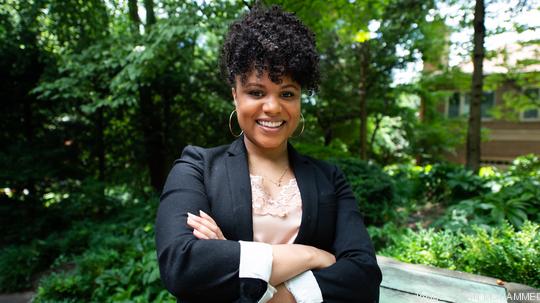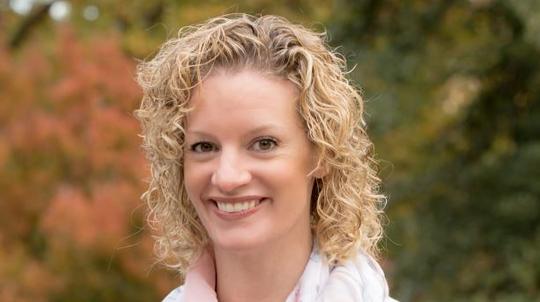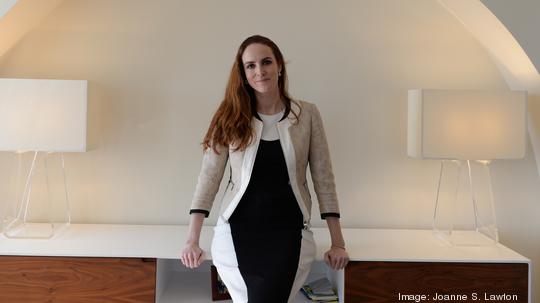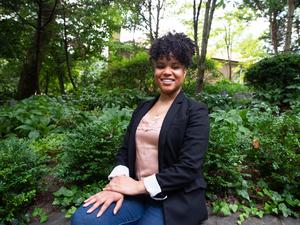A year ago, D.C. area startup founders and investors couldn’t fathom what 2020 would have in store.
The same could be said now as we head into 2021. But that didn’t stop us from checking in with some of the region’s founders, experts, investors and connectors about what we should expect to see in Greater Washington’s startup ecosystem in 2021.
“Overall, I think there is a sense of hope,” said M3 Advisors founder and Citrine Angels board president Stephanie Marshall, “not that we get back to normal, but rather that we take what we’ve learned from the past year and create something even better from it.”
Here are their predictions.
The Pivot will persist — and yield results
“We should expect to see the fruits of some drastic pivots from area companies adjusting to a remote world,” said Dawn Myers, director of Vinetta Project’s D.C. chapter and founder of D.C. hair hardware startup The Most.
This year, we saw local companies across industries adapt their business models to the new reality. Among District startups alone, CarpeDM turned its video dating app into a virtual interactive dating show, Happied transitioned from in-person entertainment to virtual experiences for organizations, and undergarment startup Underbares repurposed its manufacturing capacity to make masks and personal protective equipment — just some of the many examples, Myers said.
“We’ll continue to see scrappy founders find the opportunity amidst the fog of Covid,” she said.

Diversity, equity and inclusion efforts will mount
Academy Investor Network co-founder Emily McMahan expects the push for a more inclusive investing to continue in 2021. The new year holds promise for first-time fund managers and founding teams with diverse leadership, she said.
New funds and other efforts working to bring more equity to both the investor and entrepreneur spaces will also likely expand in 2021, M3's Marshall said. She hopes those efforts will result in a more equitable funding picture, especially for women. “I want to see our community band together to reverse the funding losses female founders faced in 2020,” Marshall said.

Investment in early-stage and social impact ventures to continue
In 2020, the region saw a collective push for greater investment in early-stage startups, with the growth of groups such as Citrine Angels and Halcyon Angels.
That’s not going away, with more people pursuing investments on both sides of the table. Citrine Angels is seeing more applications for its upcoming funding cycle in the first quarter, as well as increased deal flow from other local organizations “and an increased interest from our members to write checks,” Marshall said.
With that trend came more interest in the mission-driven niche, said Julian Ha, a local angel investor and executive recruiter with Heidrick & Struggles. "There is also a growing appetite for social impact investing which I foresee continuing and strengthening in 2021," Ha said.
His comments echoed a prediction that Halcyon CEO Kate Goodall made earlier this year. “I consider 2020 the mass adoption year — we are now going to be investing in the things that we want to see in the world, rather than continuing the status quo-investments and hoping that it’ll change,” Goodall said in an August panel discussion.

Tech innovation, in both private and public sector, will grow
For K Street Capital, where Ha is an executive committee member, a record year in terms of activity in 2020 was fueled by new, intriguing, locally grown ventures rooted in artificial intelligence, computing hardware, fin-tech, ed-tech and telehealth, he said.
Ha expects to see more of those firms garnering investments in 2021. In addition, tech companies that can help the federal government and the new administration deliver services more efficiently “will gain additional traction,” Ha said.
That traction could also manifest for dual-use technology that have both commercial and military applications, Academy Investment Network's McMahan said. “I am impressed by the possibilities and appetite for non-dilutive funding opportunities to bring more innovation into government.”

Location will lose importance
McMahan also sees the widespread shift to remote work during the pandemic and replacement of in-person meetings with video conferences as a benefit to D.C.-area companies. It could mean local founders will not be as limited by geographical boundaries in their ability to access capital and talent, she said.
Marshall echoed that prediction, noting the new dynamic created by 2020 could affect where investors invest — opening new doors beyond their immediate areas — and where founders pitch, allowing them to reach more funding sources virtually. “I think this opens more opportunities for both investors and founders in 2021,” Marshall said.





